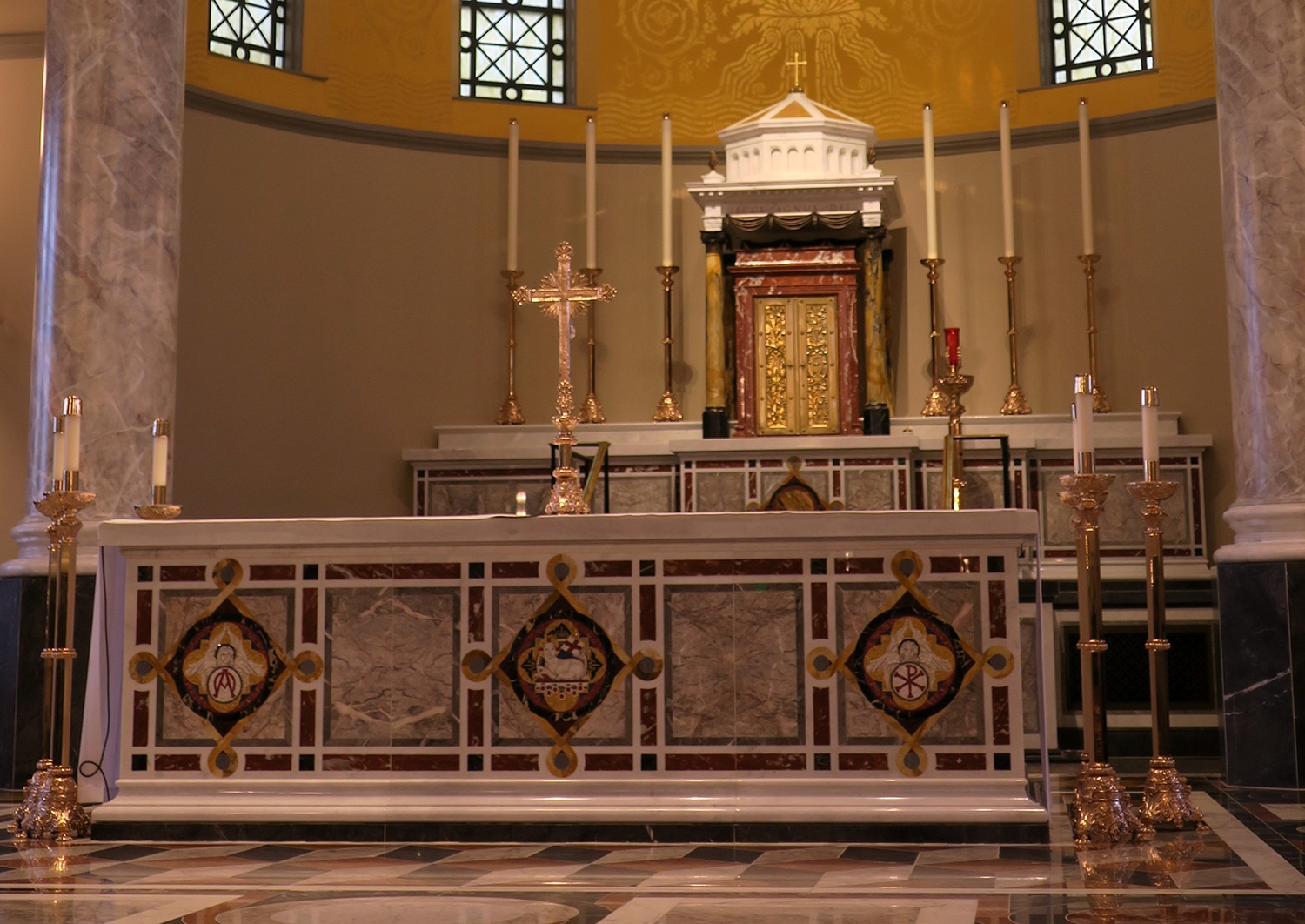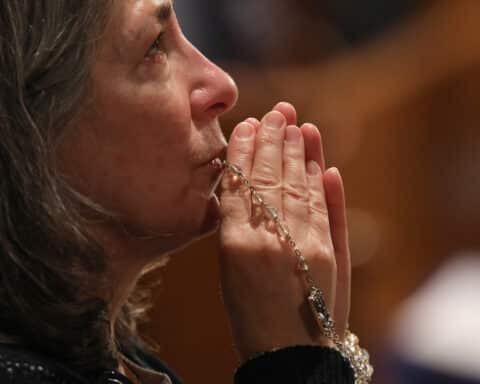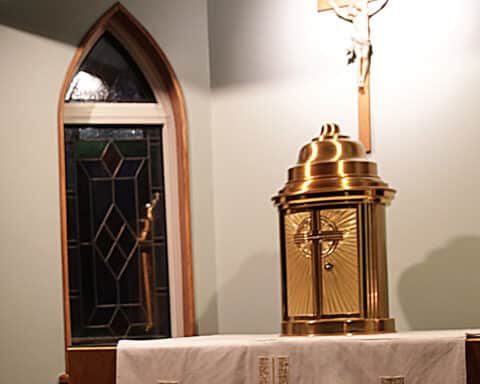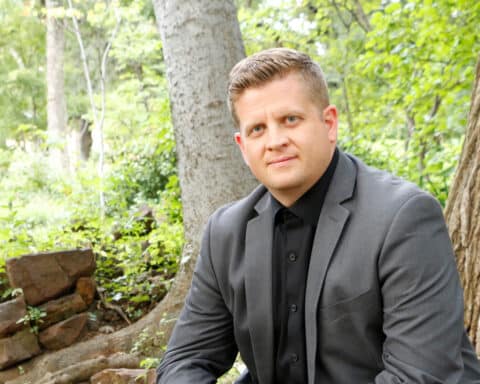He was there — reliably there, always ready for a visitor, always happy to listen. Al Williams was a saintly Baptist deacon who influenced me a lot in my youth, and many others as well. In the evening, unless he was at church, he was usually to be found at home, watching a Red Sox, Celtics or Bruins game, depending on the season, and kids knew they could drop by if they wanted to talk.
He had a ministry of presence, as we might say nowadays. He affected me, and I’m guessing many others, when those who “evangelized” and “witnessed” and worked hard to close the deal did not. He was a Christ-figure in a very practical and personal way, which I later found perfected in the tabernacle.
The Mass and the tabernacle
When I first discovered the Catholic understanding of the Eucharist, I loved the idea that Jesus comes to dwell among us and in us. Most of my fellow converts talked about the way the Mass drew them into the Church. I felt that, too, but I felt even more strongly the pull of the tabernacle.
I learned not to say that because saying it got me strange looks or the kinds of lectures patient adults give to children dealing with matters over their heads. I got it from the more traditional and the more modern. They seemed worried that I would discount the Mass because I loved the tabernacle.
One reason for their reaction (I think) is that religious people like to dial it up, to talk about every aspect of the Faith at its best and highest, its most intense, with all its bells and whistles. The Mass offers a spectacle, a drama, with the words of the liturgy and the ritual actions, with the Scripture and the homily, and then Jesus appearing where He had not been before and our receiving him.
There’s a lot going on in the Mass. It’s a Big Thing.
But the tabernacle just sits there. Jesus waits for us in the church. He already arrived. That drama’s over. He waits for us the way Al sat in his living room waiting for visitors, happy to see whoever shows up.
It’s not a Spectacle. But it’s a Big Thing. It’s astonishing good news. Even better good news than the kind of more “spiritual” salvation my evangelical friends proclaimed. It was even better good news for someone of my put-your-finger-on-things kind of mind. Here, God through the Church gives us Jesus in a form we can see and touch.
I entered the Church in part because she offered Jesus in the tabernacle. I loved knowing Jesus was, so to speak, always just around the corner. Walking into the church, even when it’s empty, except for Jesus, feels like walking into your real home with your brother and best friend sitting there. He loves you as no on else does, he’s glad to see you, he’ll listen to you and do anything he can for you, and he doesn’t expect you to be anyone but who you are.
Presence and friendship
This means a lot to me. Not, I should say, the chance to adore Jesus so much as to enjoy his presence and friendship. I’d been put off as a new Catholic by the way experienced Catholics, with that same worried look and patient lectures, would insist that I must kneel there in rapt adoration. They pushed the spectacle, the drama, the intensity of the experience.
But I felt (as I’ve written here) more attracted to just spending time with Jesus. I felt that way partly because I’m not big on spectacle, and I deeply value friendship. I’d also experienced among evangelicals enough of “spectacular” religion and its many problems to react against it when I met a version of it among Catholics. The spectacle thrilled them, and the pursuit of religious thrills had as bad an effect as the pursuit of any other kind of thrill.
I like things that are normal, everyday, simple, gentle, “homely” in the English sense, that don’t intrude or impose themselves but grow on you, and in you, over time. Things that enrich and satisfy more than they excite. The bigger and louder it is, the less I like it. (Except for fireworks.) The quieter and more permanent it is, the better.
Time with friends, for example. When simply being together, without an agenda except the pleasure of each other’s company, is enough. This applies most of all to time with the Lord of Lords who is the Friend of friends, who waits for us in the tabernacle, who loves us so much that he wants our company and makes himself available.





